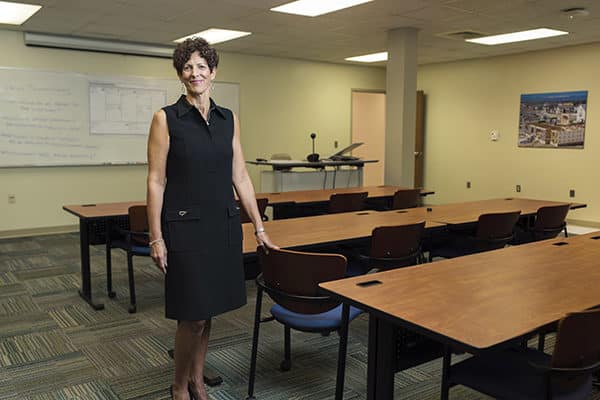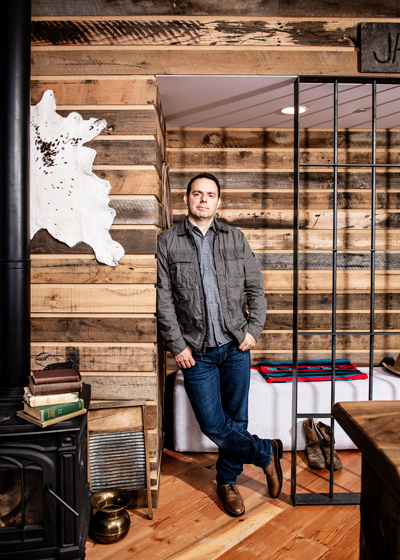In 1955, William Grant Sr. founded Universal Forest Products (UFP), a lumber supplier for the manufactured housing industry. He hired Peter F. Secchia in December 1962 and, under Secchia’s guidance, the organization’s leaders came together to put a big emphasis on the importance of relationships with their customers, vendors, and employees. They strongly believed that those relationships, along with an ethic combining hard work with fun, could build a successful company.
UFP went public in 1993, and today it’s a multibillion-dollar holding company, headquartered in Grand Rapids, Michigan, with subsidiaries around the globe serving three major markets: retail, industrial, and construction. Its sales last year totaled $3.9 billion, and it has approximately 11,000 employees spread across 130 operational locations in North America, Australia, Europe, and Asia. The executives know nearly all these employees personally in some way because UFP’s identity and success are still defined by its familial culture. Walk through any executive’s office, and you’ll find, framed proudly, photos of employees, operational plants, and products.

“We want employees to feel like part of the organization, like they are a family, not like they’re just a part of this huge organization, like cog in the wheel,” says Nancy Degood, vice president of HR. She and others on the leadership team therefore employ a number of measures to help maintain connections with the rest of the workforce, and this, in turn, has strengthened loyalty and improved workforce satisfaction.
One of the primary ways the executives of UFP, including Degood, get to know employees is through annual Plant Review trips, yearly pilgrimages to the company’s core operational plants in North America to talk with different groups of employees and ask questions. Is the company meeting it commitment statements? How have employees responded to recent policy changes? During the trips, employees get to schedule personal time with the executives to discuss important matters. The dialogues allow for better decision-making and the ability to attack potential problems faster.
During Plant Review trips, the executives also hold a sponsored lunch where employee achievement and seniority awards are presented. “It’s very indicative of who we are as an organization,” Degood says, adding that all employees, from different levels, including the executives, are addressed on a first-name basis. “When the television show Undercover Boss came out, we had a good laugh within our department. We said there’s no way that our executives could pull that off because they’re known to our people.”
UFP’s commitment to its workforce is also evident in its focus on safety. Because the company works in the manufacturing sector, the risks to its workers are serious, so it invests a lot of time and money to keep its safety training up to date. And, documentation and literature on safety, benefits, and employee relations and policies are provided not only in English but in the native languages of Spanish and French-Canadian bilingual hires.
To keep its safety program fun, UFP encourages employees’ families to participate. Workers’ children, for example, have been given the opportunity to enter a safety-related drawing contest, and the winner has gotten to have their drawing blown up and displayed on a poster at a plant. Other participants have gotten to join raffles to win gifts and surprises.

Numerous plants have also held weekend events to promote family and safety. At some, local fire fighters, police, and local safety personnel have been invited to talk to the kids and hold educational workshops on yard-tool safety, safe lifting techniques, and fire safety. “We want the families to be safe and healthy as well as the parents who are working for us,” Degood says.
UFP’s efforts to remain in tune with and value its employees have generated an added level of pride and loyalty within the workforce, and its focus on family isn’t going away anytime, either. The company has an education foundation that provides college scholarships to employees’ children, and in 2016 it actually founded its own educational program, the UFP Business School. It’s a two-year program designed after a four-year business degree program. Classes are taught by UFP professionals, and students come from within and outside the organization. Students who qualify get to attend the two-year program tuition-free through a full scholarship that is paid by the company, and those who successfully complete the school have first crack at available jobs. The first class had its commencement in August 2018, and the nine graduates are accepting jobs in places such as Salisbury, North Carolina; Saginaw, Texas; Prairie Du Chien, Wisconsin; and Chandler, Arizona.


